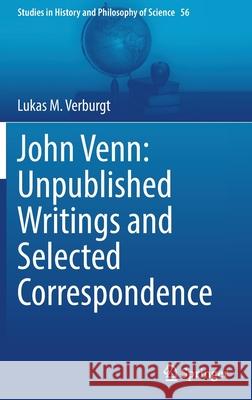John Venn: Unpublished Writings and Selected Correspondence » książka
topmenu
John Venn: Unpublished Writings and Selected Correspondence
ISBN-13: 9783030798284 / Angielski / Twarda / 2021 / 290 str.
Kategorie:
Kategorie BISAC:
Wydawca:
Springer
Seria wydawnicza:
Język:
Angielski
ISBN-13:
9783030798284
Rok wydania:
2021
Wydanie:
2021
Numer serii:
000318552
Ilość stron:
290
Waga:
0.57 kg
Wymiary:
23.39 x 15.6 x 1.75
Oprawa:
Twarda
Wolumenów:
01
Dodatkowe informacje:
Komentarz
Wydanie ilustrowane
Wydanie ilustrowane











